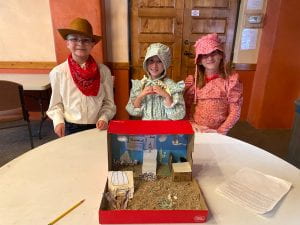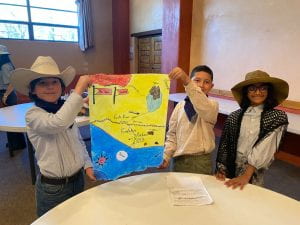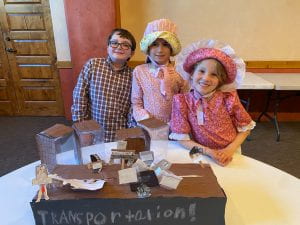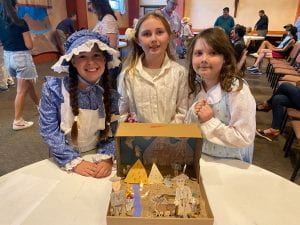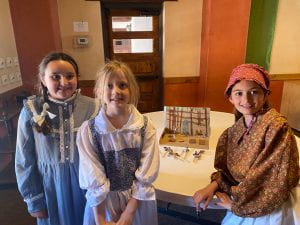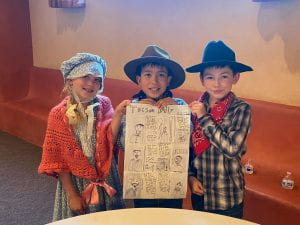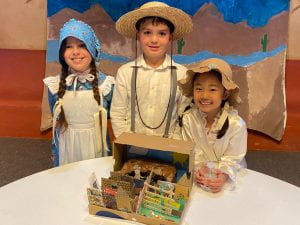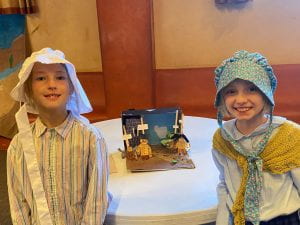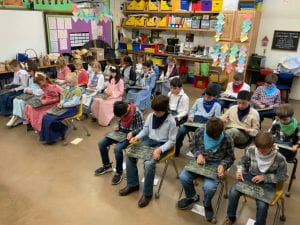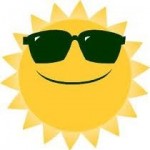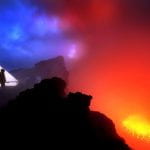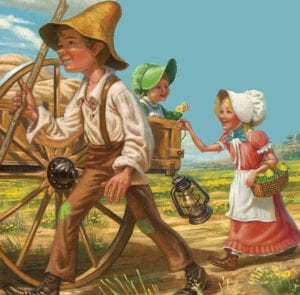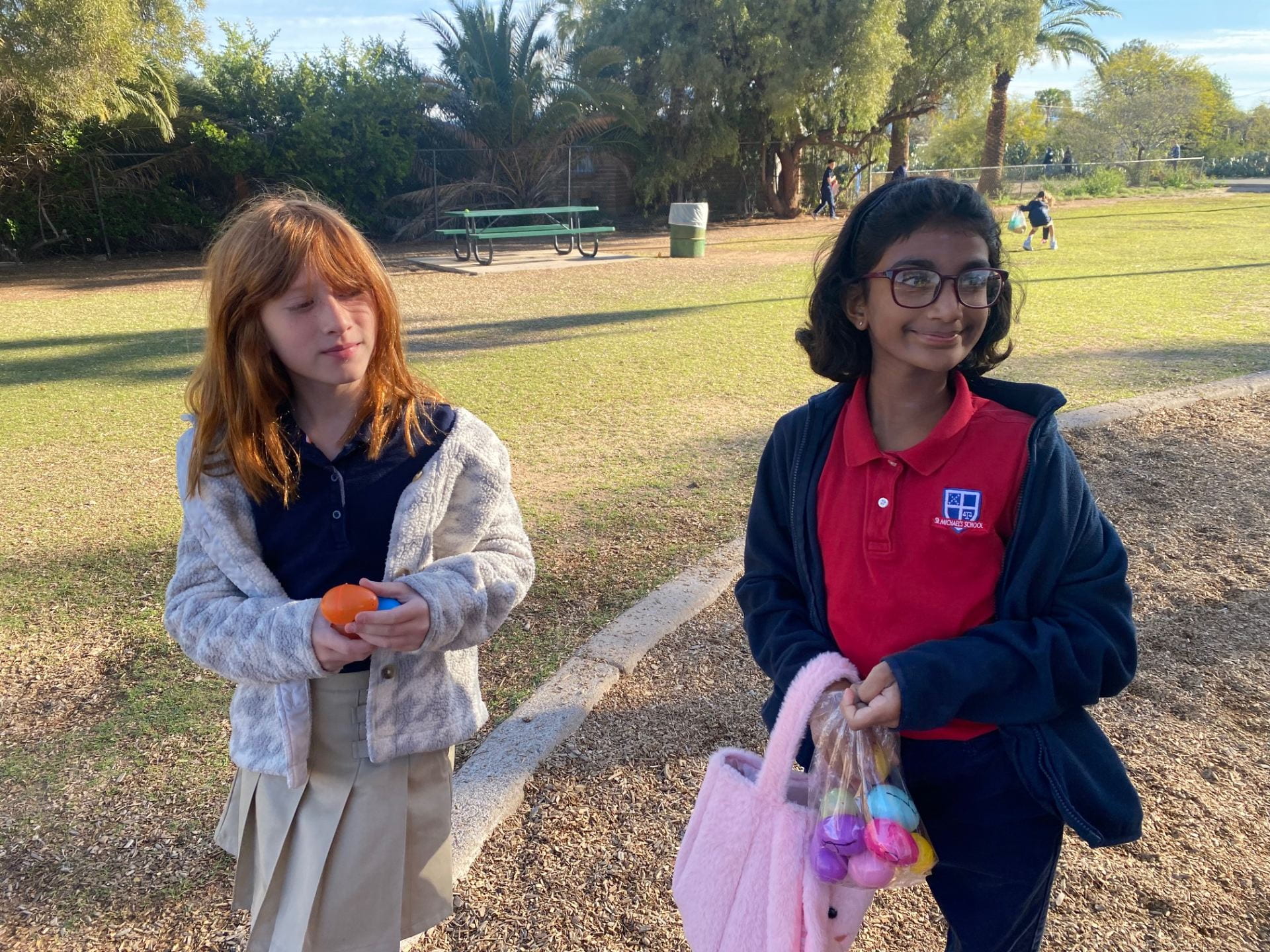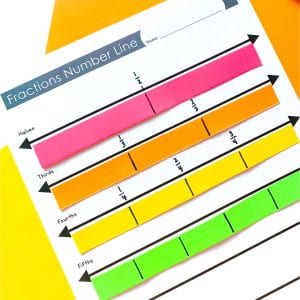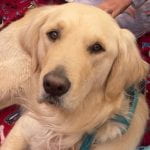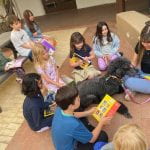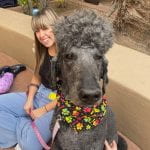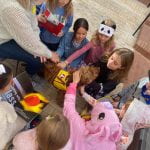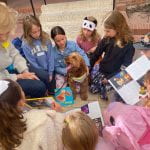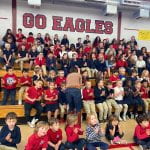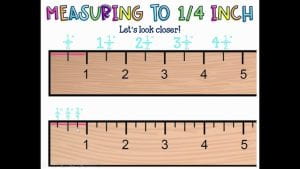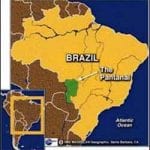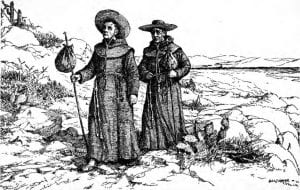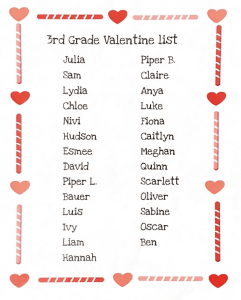Students’ Highlights 4/22 – 4/26
- Library visit for poetry books
- Math- Division facts and word problems
- Science- oxidized pennies taught lessons about chemical change
- Language Arts- reading about volcanoes, and learning to draw conclusions and use adverbs
- Music- highlighted lines for our Fine Arts Night play
- Spanish- finishing up the The Desert is my Mother posters
- PE- played Tower Takedown which improves throwing catching and defending
- Art- painted clay sculptures
Students will share their Tucson History projects at All School Chapel in the Student Center (gym) on April 29th, 8:15 am. They are to wear their costumes to school and bring uniform clothes to change into after chapel concludes. You are welcome to join us. As a reminder, borrowed costume clothing and glass jars should be returned clean and at your earliest convenience.
 Students continue to develop their understanding of the meaning and structure of division and of the relationship between multiplication and division. Students solve problems that include the division facts, as well as problems that result in a 2-digit quotient. Just as with multiplication, solving division problems requires a grounding in images of division. Students use diagrams, story context, and other math tools to deepen their understanding of division. Students also encounter problems that involve remainders and must make sense of the remainder in the context of the problem.
Students continue to develop their understanding of the meaning and structure of division and of the relationship between multiplication and division. Students solve problems that include the division facts, as well as problems that result in a 2-digit quotient. Just as with multiplication, solving division problems requires a grounding in images of division. Students use diagrams, story context, and other math tools to deepen their understanding of division. Students also encounter problems that involve remainders and must make sense of the remainder in the context of the problem.
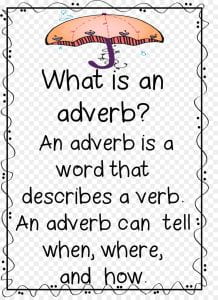 In Language Arts, students discuss their ideas and understanding about the Big Question: What forces can change Earth? This week’s main reading selection, Volcano Views, is a photo-essay that shows just how dangerous volcanoes can be. Students will continue to develop their understanding of drawing conclusions and making inferences by relating important ideas in their reading. Grammar lessons build on the understanding of an adverb, comparison adverbs, and irregular comparison adverbs.
In Language Arts, students discuss their ideas and understanding about the Big Question: What forces can change Earth? This week’s main reading selection, Volcano Views, is a photo-essay that shows just how dangerous volcanoes can be. Students will continue to develop their understanding of drawing conclusions and making inferences by relating important ideas in their reading. Grammar lessons build on the understanding of an adverb, comparison adverbs, and irregular comparison adverbs.
Reminders
- April 29: Tucson History Project presentations, 8:00am
- May 9: Mother’s Day Spa-tacular, 1:00pm – 3:00pm
- May 10: Fine Arts 2-3pm
- May 17: Donuts with Dads, 8:00am – 9:00am
- May 17: Art Expo, 5:30pm – 7:30pm
- May 21: Year-End Party, 9:00am – 1:00pm, Brandi Fenton Park Ramada 5
- May 23: Last Day of School, noon dismissal
Spelling Lesson 30 Compound Words
- hallway
- sidewalk
- farmhouse
- hillside
- inside
- springtime
- driveway
- cornfield
- downstairs
- horseback
